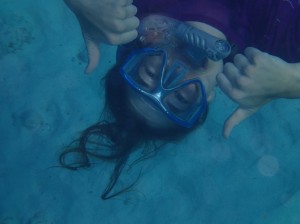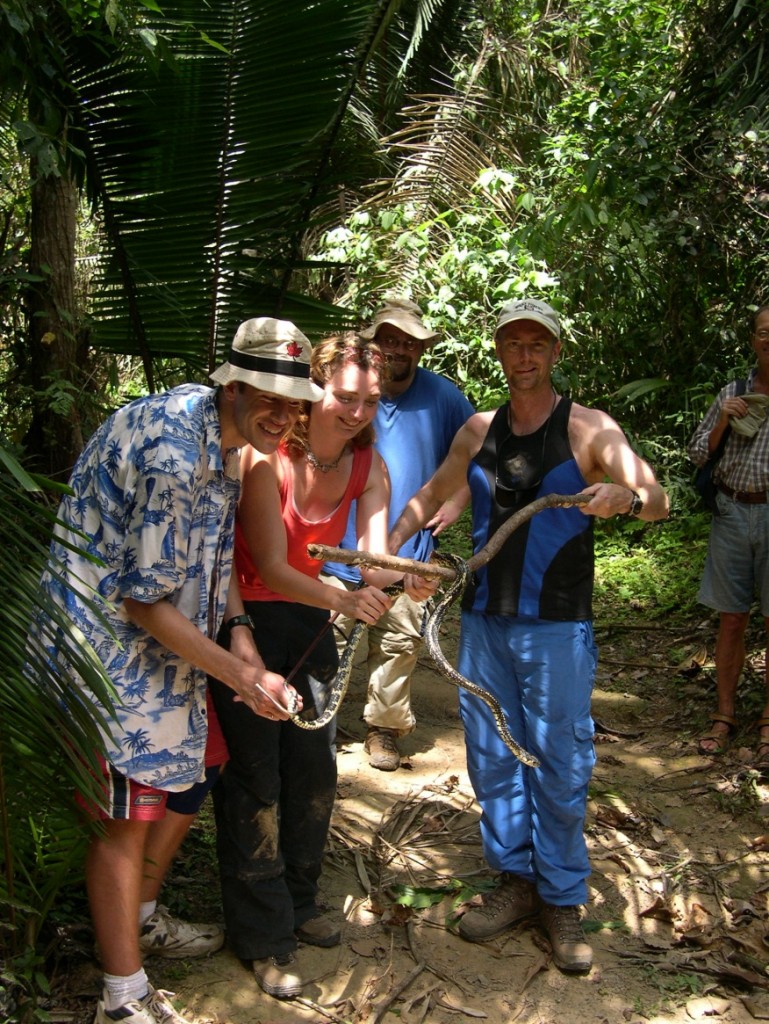By Wendy Simms, Biology Department, Faculty of Science and Technology, Vancouver Island University

I have a four year old son enrolled at a daycare that has a “Kinderprep” program 4 days a week. However, once the school year ends in June they take a break from Kinderprep and go back to play based activities.
Last summer, “Teacher Naomi” tried something new. She transitioned Kinderprep directly into a series of educational/experiential fieldtrips. A tour of the Save-on-Foods bakery, singing at the old age home, blackberry picking, a trip to Newcastle Island and the Beban Park petting zoo were just some of the trips she lined up. All of them had their unique set of “teachable moments”.
B-U-S spells BUS. Two half cups of flour make a full cup. Birds eat blackberries and poop out the seeds. The tide goes out then comes in to get my feet wet. I was really impressed that Teacher Naomi had the enthusiasm (and the patience) to pull this off, but she absolutely loved it. What was even more impressive was the effect these little field trips had on my son’s mental (and social) development. With every trip he was taking in information, processing it and then applying what he had learned to other situations at home. Pretty major for a 4 year old!
Fast forward to a student 20 years his senior and that developing brain is still getting enormous mental (and social) benefits from experiential learning outside of the classroom.

Since 2004, I have been involved in a VIU Tropical Biology Field School that takes 20 upper level university students to Belize for 5 weeks. Students have organized lectures and labs while they are in Belize and they also write 2 exams and submit a journal at the end of the course to satisfy the requirements for their 6 credits.

However, the students seem to learn even more during the unstructured time of the trip where they are simply observing the environment around them and interacting with the locals. The hikes, canoe trips, zoo, caving, homestays, tubing, swimming, fishing, snorkeling, Mayan ruins, soccer with the locals, night walks and community outreach projects technically contribute absolutely nothing towards their degree. Yet, all of them have a unique set of teachable moments that contribute immensely to their mental (and social) development as a biologist.
It is the fact that they are immediately applying what they have learned in lecture and lab that makes these mere observations or experiences so educational. Having these teachable moments while they are learning about a topic is key. It solidifies what they have just been taught and provides a much greater depth of learning than we could have ever taught in the classroom alone. And the students are the first to admit this.
Now, I realize that not every student, course, instructor, or program can go to Belize for 5 weeks! But the idea that all of these little experiences together can deepen the learning makes you wonder if a bunch of mini teachable moments right outside (or even inside?) of our own classroom door can have the same effect.